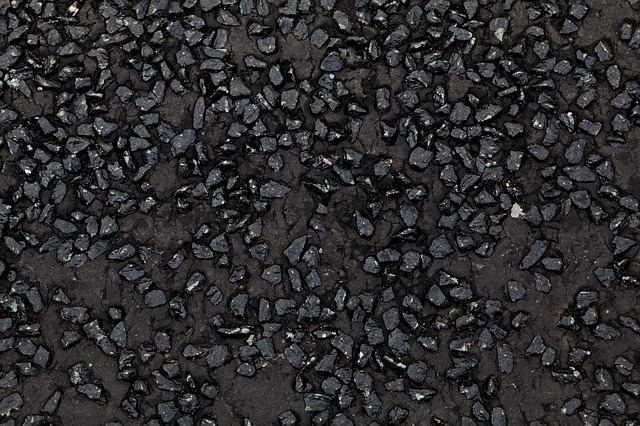There’s been a rise in the use of black tar heroin, in part because of crackdowns on prescription opioids. When people who are addicted to prescription drugs can no longer acquire them, they sometimes turn to black tar heroin because it’s a cheaper heroin derivative. This trend is concerning because black tar heroin is dangerously impure, making it extremely risky to use. Heroin addiction involving black tar heroin puts people at high risk for addiction. Here’s what you need to know about opiate dependency, black tar heroin, and how The Ranch PA can help treat your loved one’s heroin addiction.
What Is Black Tar Heroin?
Heroin is a mixture of diacetylmorphine (or diamorphine) and different filler ingredients. Diamorphine is the opiate that produces the heroin high. Heroin is usually sold in three forms:
- Black tar heroin
- Brown powder heroin
- White powder heroin
Each type has slightly different ingredients, with different adulterants likely added to each. These added substances can add to the drug’s potency and increase its risks. Fillers might be:
- Black shoe polish
- Dirt
- Other opiates
Black tar heroin is a variation of heroin that’s sticky like tar. It’s produced using a very crude process, leaving an unrefined form of the opiate. It has existed for over 100 years, but its popularity rose in the 1970s because it was easier and cheaper to produce than white powder heroin, due to the crude processing methods used. Black tar heroin isn’t necessarily more impure than other types of heroin. White powder heroin is also cut with other substances to keep costs down. Black tar heroin is typically 30% pure due to the faster manufacturing process, which makes it, in general, more impure. But between different batches, purity can vary a lot. Users can inject, snort, smoke, or drink black tar heroin. They can also dissolve it in water and drop it into the nose. Some users insert it in the rectum via suppository. Many drug users note that black tar heroin tends to have a strong vinegary smell to it. This is due to the chemical process used to make it.
The Addictiveness of Black Tar Heroin
In response to the rise of prescription drug abuse in the U.S., states have been setting limits on how many opioids doctors can prescribe. With more restrictions in place, people who abuse prescription drugs may turn to black tar heroin as an alternative because it offers the same painkilling effects, relaxation and euphoria. While most black tar heroin lacks the purity content of white powder heroin, this doesn’t mean it isn’t potent. The effects of black tar heroin can be much stronger than other types because other opiates may be added. The other opiates can make the heroin high much more intense and increase its addictive potential. Drug users can also become easily addicted to black tar heroin because it’s so cheap. This makes it easier to continue using.
Signs of Heroin Addiction
Heroin addiction, including addiction to black tar heroin, is associated with a number of symptoms that are behavioral, physical, psychological and social in nature.
Behavioral Symptoms of Heroin Addiction
- Losing interest in activities that used to be important
- Lying or being secretive or deceptive about one’s whereabouts and activities
- Frequently being absent from work or school
- Suddenly performing poorly at work or school
- Wearing long-sleeved shirts in warm or hot weather as a way of hiding marks from injecting heroin
- Possessing syringes or other heroin-related paraphernalia
Physical Symptoms of Heroin Addiction
- Weight loss
- Flu-like symptoms
- Scabbing or bruising of the skin
- Sleep problems
- Itchiness
- Constipation
- Watery eyes
- Runny nose
- Exhaustion
- Kidney and liver damage
- Hepatitis C
- HIV/AIDS
Psychological Symptoms of Heroin Addiction
- Confusion and disorientation
- Despair
- Shame and guilt
- Depression
- Trouble concentrating
- Poor judgment
Social Symptoms of Heroin Addiction
- Social isolation
- Withdrawing from family and friends
- Financial issues
- Legal problems, such as arrest or imprisonment
- Job loss or unemployment
- Strained or ruined relationships
- Mood swings and sudden angry outbursts
Treatment for Black Tar Heroin Addiction
With heroin addiction, a medical detox is often necessary. Although it’s possible to kick an addiction to heroin on your own, attempting to do so can be fatal. Black tar heroin withdrawal symptoms can include:
- Pain
- Nausea
- Cravings
After detox, heroin cravings can continue for months. This is why it’s critical to get into an inpatient or outpatient rehab program when medical detox is complete. Heroin addiction carries a high risk of relapse. Professional treatment can help you recover safely and support you in long-term sobriety.
Black Tar Treatment at The Ranch PA
The Ranch PA’s empathetic, caring, and qualified staff can help you thoroughly withdraw from black tar heroin and then implement a comprehensive treatment plan that addresses your physical, psychological, and spiritual needs to get you on the path to a drug-free life. We offer a number of different treatment options that combine an array of rehabilitation modalities. Our clients participate in cutting-edge addiction therapies such as:
- Cognitive behavioral therapy (CBT)
- Motivational interviewing
- Music activities
- Art activities
We also provide fitness training, nutritional education, acupuncture, and a comprehensive aftercare program that makes living in sobriety outside rehab easier. You don’t have to keep living your life addicted to black tar heroin. Contact The Ranch PA at [phone], and find out what treatment options are available for you.

